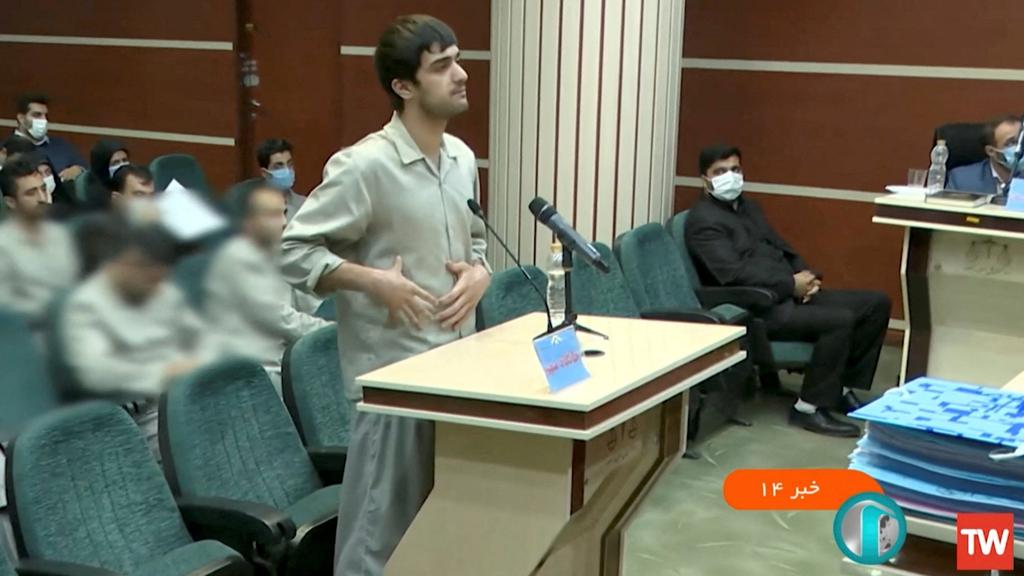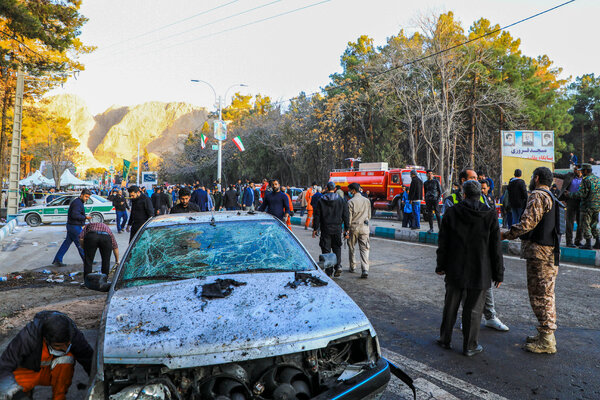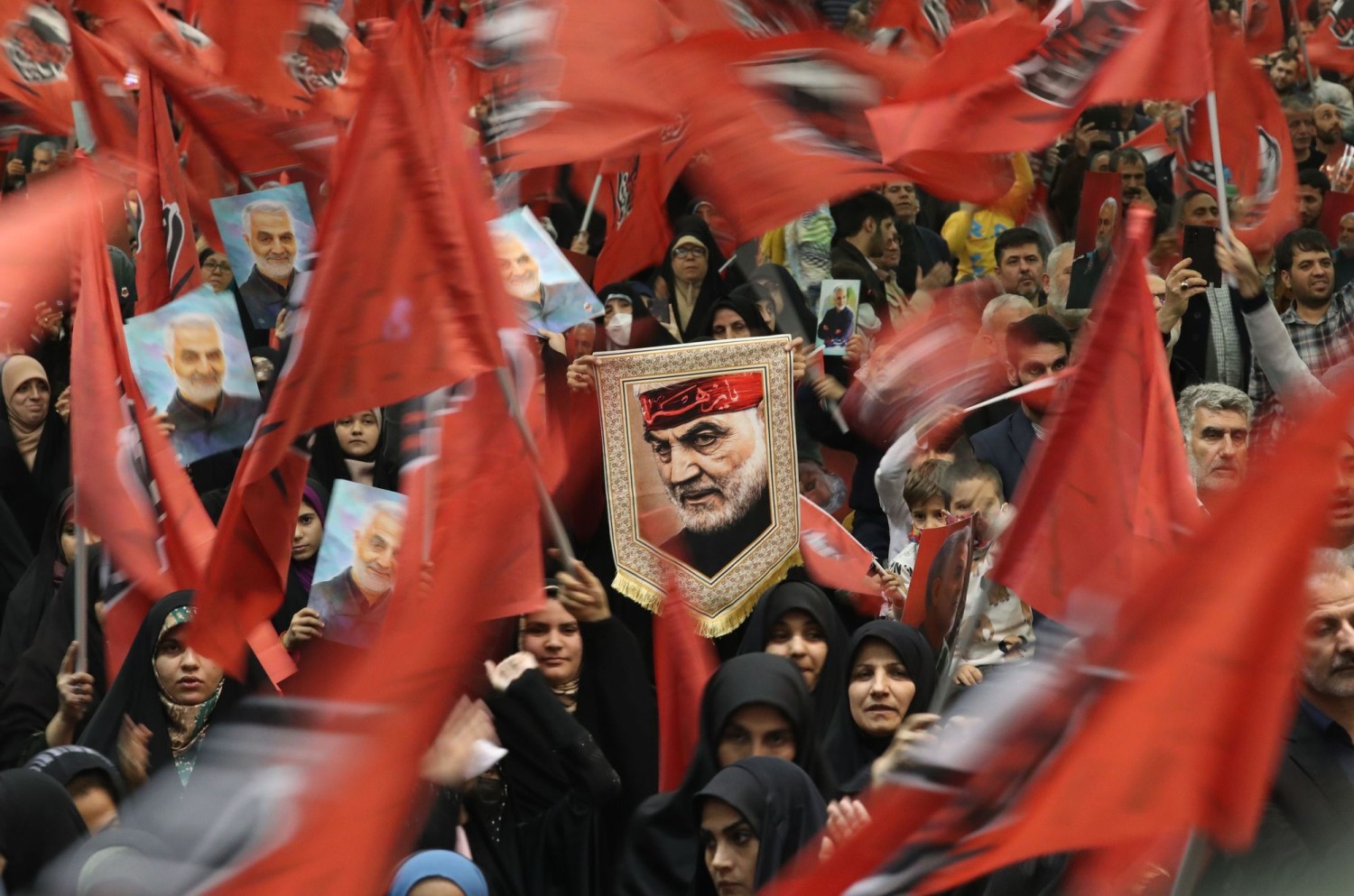This article is more than
4 year oldIran's Revolutionary Guards ‘successfully launch military satellite’
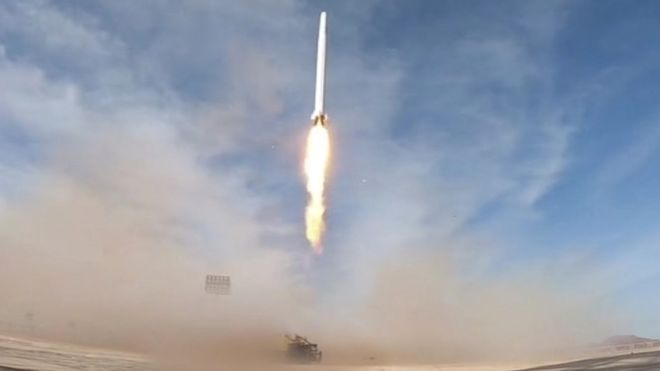
The satellite, named Nur ("Light"), reached an orbit of 425km (264 miles) after being carried by a three-stage Qased launcher, a statement said.
Iran has attempted several launches in the past year that have failed.
If the success of Wednesday's launch is verified, it seems likely to add to the tensions between Iran and the US.
The US has asserted that such satellites go against a UN Security Council resolution, which calls upon on Iran not to "undertake any activity related to ballistic missiles designed to be capable of delivering nuclear weapons".
Iran has denied violating the resolution and insisted that its space programme is entirely peaceful and that it has no intention to develop nuclear weapons.
The same resolution endorsed a 2015 nuclear deal between Iran and world powers that US President Donald Trump abandoned two years ago, saying it was flawed.
Tensions between the US and Iran rose in January, when the US killed a top IRGC general in a drone strike in Iraq.
Iran responded by launching missiles at Iraqi military bases hosting US forces.
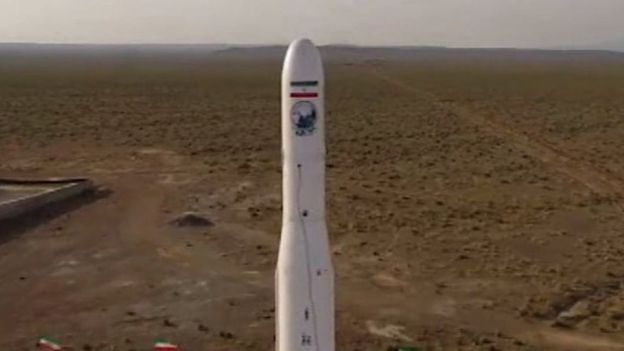
The Qased carrier was inscribed with a Koranic verse recited by Muslims going on journeys |
The IRGC said Wednesday's satellite launch from the remote Central Desert would "be a great success and a new development in the field of space for Islamic Iran".
Footage broadcast by state TV showed the Qased carrier inscribed with a verse from the Koran that Muslims often recite when going on a journey: "Glory be to Him, who has subjected this to us, and we ourselves were not equal to it."
IRGC Aerospace Force commander Brig-Gen Amir-Ali Hajizadeh said the Qased "used a compound of liquid and solid propellants". He added: "Only superpowers have such capability and the rest are just users of such technology."
Iranian Telecommunications Minister Mohammad Javad Azari Jahromi congratulated the IRGC on the "great national achievement" and stressed that the Aerospace Force's space programme was defensive.
"Part of Iran's peaceful [space] programme is civilian which is pursued by the government, while another part is for peaceful defence purposes and naturally carried out by the armed forces," he tweeted.
A Pentagon spokesman told the Associated Press that US officials would continue to "closely monitor Iran's pursuit of viable space launch technology".
"While Tehran does not currently have intercontinental ballistic missiles (ICBMs), its desire to have a strategic counter to the United States could drive it to develop an ICBM," Maj Rob Lodewick said.
In February, Iran failed to put into orbit the Zafar communications satellite.
There were two other failed satellite launches last year, as well as a mysterious explosion that destroyed a satellite launch vehicle.
Newer articles
<p>The British singer/songwriter/DJ will perform at Warner Theatre on May 16.</p>
For Putin, Gaza is an endless gift
Bombshell new theory on Titan sub disaster
Russia pounds Ukraine with biggest airstrikes in weeks
Woman'sCanadian citizenship revoked after 32 years amid 'error'
‘Orange turd’: Porn star’s swipe at Trump
WWE icon ruthlessly axed after 32 years
Justin Bieber announces huge personal news
Netflix edits out awkward Kim moment
How Kendrick Lamar and Drake changed rap beefs forever Rapid-fire releases and fast pace of modern life elevate diss war to levels unparalleled in hip-hop history.
